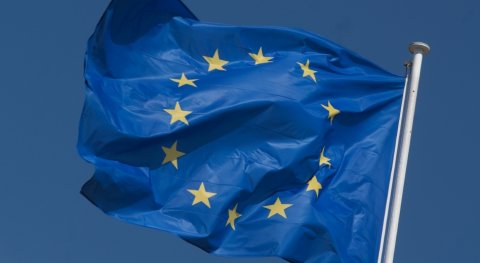

Labour cares about international development both because our international work for development – fighting poverty and improving the lives of millions – embodies our collective values, and because international development is also in our national interest.
This is particularly obvious at this time of international crises – such as the ongoing refugee crisis to the growing climate chaos the planet will face in the coming decades. Such international crises both affect us here in Britain and people all over the world. In recent years, Governments across the world have recognised that the way to tackle such shared challenges is more cooperation between states and not less, and that is why Britain will be best placed to meet the challenges of international development from within the EU.
In today’s challenging global environment, the EU is uniquely placed, not only in terms of its member states working together to tackle these issues, but also in that the EU itself can also become a significant voice on key issues on the global stages. EU membership can therefore be a practical way to multiply the UK’s influence, as well as helping to extend our reach in terms of international aid.
The EU is a major donor in terms of international development – the EU and its Member States remain the world’s largest official development assistance (ODA) donor.
EU collective ODA amounted to a total of £46.4 billion in 2014, corresponding to 0.42 % of combined Gross National Income (GNI). The total ODA of the EU Member States alone in 2014 stood at £44.7 billion, or 0.41 per cent of combined GNI. In 2014, the European Commission continued its political and financial support for development worldwide, committing over £7.9 billion to external development assistance, representing some 7 per cent of the general budget of the EU for 2014.
Furthermore, the EU’s international aid is rated highly in terms of transparency and includes specific commitments both worthy of support from Labour’s progressive standpoint and in terms of Britain’s national interest. These include :
- The EU remains committed to devoting at least 20 per cent of EU aid to support social inclusion and human development.
- The EU is committed to make at least 20 per cent of its total spending climate-relevant in order to mainstreaming environment and climate change issues in development cooperation.
- The EU recognises the importance of promoting gender equality in international development, including a recognition of the vital role of grassroots organisations in the realisation of women’s rights, and their contribution to sustainable development.
A Multiplier Effect and Increased Reach: European Union Aid Complements British Aid
The UK delivers 10% of its development spending through the EU and every pound of aid the UK spends through the institutions of the European Union is matched by £6 from other member states meaning that a larger pool of money is able to deliver better lives for the poorest people around the world, and that more areas can be benefitted.
Within those working international development, it is widely recognised that the fact that funding from the member states is pooled means it can be used more efficiently and allows it to go further and wider. It can also therefore be argued that EU membership provides the UK with value for money in this area.
Furthermore, delivering aid through European co-operation means that we can help to tackle problems in areas where the UK has no large presence, for example in the Sahel and parts of West Africa heavily affected by climate change. In other words it means it is easier for us to play a positive role in terms of tackling issues and supporting specific countries, where our efforts (and money) on our own may not have enough of an impact.
In terms of complementing the work of our EU partners, the UK can then help deliver aid in areas (geographically and in terms of policy) where we are best placed.
Delivering on the UN Sustainable Development Goals and Labour’s progressive agenda
In September 2015, the UK and 192 other members of the UN signed up to the new sustainable development goals. The values underlying the global goals are embedded in EU treaties.
In this globalised world, cooperation within the EU will become more essential to tackling issues which themselves are global issues and require a co-ordinated response.
The UK withdrawing from the EU could set back our efforts to end global poverty and make a difference to the lives of the world’s poorest people, and also diminish our reach in terms of helping the poorest people across the world. The likely result of ‘Brexit’ at the current time would be to reduce both the impact and reach of our aid.
Specifically, on the key issue of tackling climate change, the effects of which are most often felt by the poor, we would be able to make less of an impact.
It would make Labour’s aim of achieving fairer trade less likely and make it even harder to tackle issues around migration and the ongoing refugee crisis.
In contrast, there is also even more potential in a reformed, progressive Europe in terms of the future for international development. European co-operation could help provide a model for more sustainable forms of development internationally, providing a platform for further work on a range of issues that can both help Britain and millions around the world.
Vote to remain in June’s referendum and make a better Britain, a better Europe – and better world – a reality.
Diane Abbott MP is Shadow International Development Secretary. Find out more about Labour In for Britain here.




More from LabourList
LGBT+ Labour suspends AGM amid fears of legal action over trans candidates running for women’s roles
‘Hyperlocal messaging can help Labour win elections: Here’s how’
Unite votes to re-examine relationship with Labour and suspend Angela Rayner